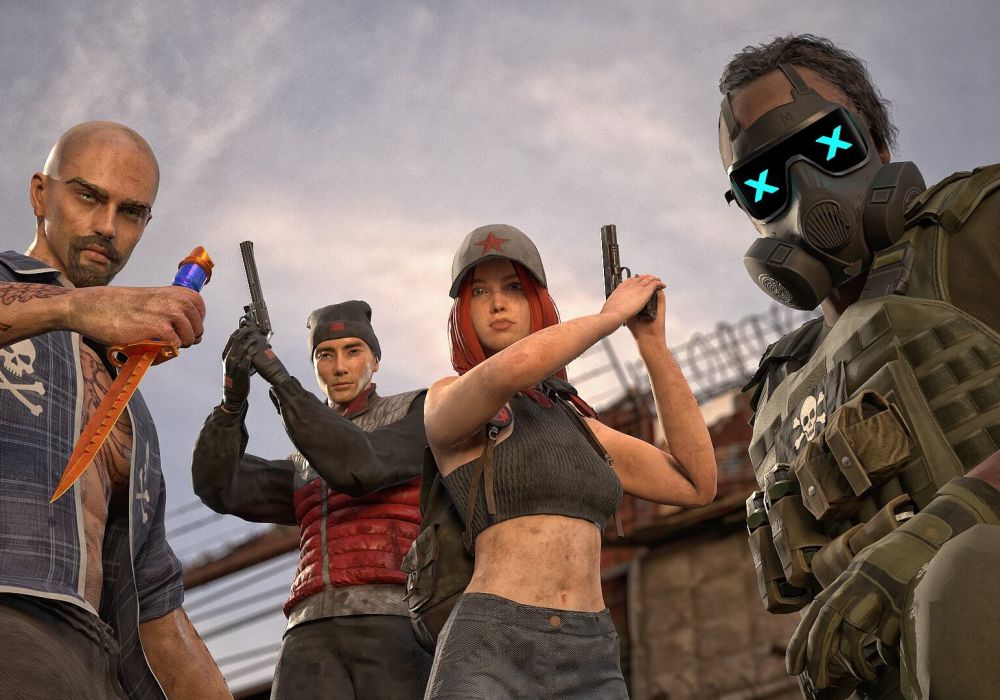From movies to shows, books to AR platforms, zombies dominate pop culture. Our collective obsession suggests these walking corpses symbolize deeper societal anxieties. Yet the zombie survival subgenre within gaming boasts particularly ravenous fans. Let’s unpack why as we dive into notable franchises. How to stay alive at all costs in terrifying zombie survival games? Let’s eplore.
Could zombie games reflect pandemic fears? Social decay worries as cultures evolve? Humanity’s inherent darkness? Regardless of allegorical angles, directing in-game characters to fight reanimated hordes or rebuild civilization clearly provides strong psychological catharsis.
Primal Freedom
Controlling an avatar running, gunning and fortifying shelters in zombie-ravaged lands connects with primordial self-preservation instincts. Fighting against contagion gone haywire or the inevitability of death itself is eternally compelling, even as gameplay offers no actual survival.
Unlike restrictive real world social parameters, these virtual worlds provide unfettered freedom to destroy rank upon rank of infected “enemies” devoid of moral personhood protections. Raw violence absent consequences. Such brazen destruction masquerading as survival liberation appeals to our species’ baser Jungian shadows.
Yet questing alongside other players in co-op modes inspires camaraderie strengthing real-world bonds as well. Human psychology proves endlessly fascinating!
Notable Franchises
Examining hit zombie titles offers clues into gameplay elements eliciting fierce player loyalty across demographics:
Resident Evil – The grande dame of zombie games since 1996, this franchise leans into horror aesthetics with resilient hero protagonist against bioweapon brain-munchers. Strong narrative throughline across sequels.
Left 4 Dead – Face-paced co-op first-person shooter pits teams against waves of mutate zombies. Level design and enemy variety spurs replayability.
Dying Light – Parkour freedom meeting brutal melee battles against the undead at night, contrasted by scavenging desolate cityscapes by day. Environmental storytelling shines.
The Last of Us – Gripping drama-centric take centered on relationship-building. The fungal zombie premise acts more as backdrop to morally complex characterization.
Dead Island – First-person action-RPG in an open world tropical setting. Crafting weapons and environmental interactions add player agency.
Each franchise leans into strengths suiting fans with certain preferences, but social elements seem crucial to cementing loyalty.
Social Survival
While action-oriented players chase ever-more gratuitous zombie body mutilation mechanics, the social factors binding gaming communities receive underestimated emphasis. Engineers script the technical gameplay challenges, but players themselves write the emotional narrative through camaraderie.
In a cultural moment with civilization seeming precariously near collapse between pandemics and polarization, zombie games arguably sublimate real-world group survival instincts. Playing together channels our restless mindsets worsening amidst climate anxiety into fictional scenarios offering cathartic relief.
The human desire for connection and meaning finds outlets constructing barricaded encampments or rebuilding civilization with people bonded through gameplay reactions. Zombies themselves become secondary as flesh-and-bone relationships nurtured in the real world through cooperative play take center stage. The eternal human narratives persist.
Virtual Universes Reimagined
As VR and blockchain technologies mature, innovation seems inevitable across immersive environments generally, but especially in zombie games with social play central to their DNA.
Persistent decentralized metaverse worlds filled with user-generated content could take sandbox elements predating Roblox to unfathomable heights. Mixed reality sensations eliciting visceral fight or flight responses also up engagement ante as players battle literal fear alongside in-game zombies.
Some experimental titles like Arizona Sunshine on Oculus VR or Plant vs Undead using NFTs to incentivize gameplay show potential. Still, until headsets shrink further, latency and nausea issues resolve, and adoption spreads, such implementations remain gimmicky.
In the meantime, traditional titles incorporating web3 economies around cosmetic assets or gameplay boosts aim to attract early adopter mindshare while avoiding mainstream alienation. Ubisoft Quartz loot experiments faced backlash, but expect more subtle integrations.
And attention around virtual real estate in digital worlds surging since 2021’s crypto breakout seems ripe for zombie infiltration from a pop culture perspective! What digital landowner wouldn’t desire undead defenses?
Wherever bleeding edge projects take things long-term, zombie games will surely shamble onward through the next decade matching audience preferences as platforms evolve. The perfect combination of social survival stimulation seems endlessly renewable as a niche yet to be fully tapped.
Until zombie stories themselves die off culturally, at least video game undead remain immortal. Our perpetual drive for collective meaning-making sustains the subgenre. Now to see if friends have time for a quick romp cleansing our mental palette in Dead Island 2 before dinner…




